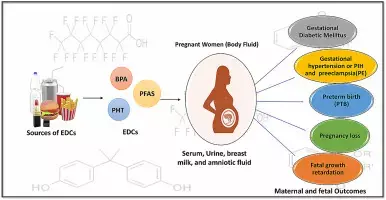- Home
- Medical news & Guidelines
- Anesthesiology
- Cardiology and CTVS
- Critical Care
- Dentistry
- Dermatology
- Diabetes and Endocrinology
- ENT
- Gastroenterology
- Medicine
- Nephrology
- Neurology
- Obstretics-Gynaecology
- Oncology
- Ophthalmology
- Orthopaedics
- Pediatrics-Neonatology
- Psychiatry
- Pulmonology
- Radiology
- Surgery
- Urology
- Laboratory Medicine
- Diet
- Nursing
- Paramedical
- Physiotherapy
- Health news
- Fact Check
- Bone Health Fact Check
- Brain Health Fact Check
- Cancer Related Fact Check
- Child Care Fact Check
- Dental and oral health fact check
- Diabetes and metabolic health fact check
- Diet and Nutrition Fact Check
- Eye and ENT Care Fact Check
- Fitness fact check
- Gut health fact check
- Heart health fact check
- Kidney health fact check
- Medical education fact check
- Men's health fact check
- Respiratory fact check
- Skin and hair care fact check
- Vaccine and Immunization fact check
- Women's health fact check
- AYUSH
- State News
- Andaman and Nicobar Islands
- Andhra Pradesh
- Arunachal Pradesh
- Assam
- Bihar
- Chandigarh
- Chattisgarh
- Dadra and Nagar Haveli
- Daman and Diu
- Delhi
- Goa
- Gujarat
- Haryana
- Himachal Pradesh
- Jammu & Kashmir
- Jharkhand
- Karnataka
- Kerala
- Ladakh
- Lakshadweep
- Madhya Pradesh
- Maharashtra
- Manipur
- Meghalaya
- Mizoram
- Nagaland
- Odisha
- Puducherry
- Punjab
- Rajasthan
- Sikkim
- Tamil Nadu
- Telangana
- Tripura
- Uttar Pradesh
- Uttrakhand
- West Bengal
- Medical Education
- Industry
Exposure to TNF- alfa inhibitors during pregnancy not tied to reduced risk of preeclampsia: Study

Exposure to TNF-alfa inhibitors during pregnancy was not tied to reduced risk of preeclampsia suggests a study published in the Journal of Hypertension.
Although the clinical importance of preeclampsia is widely recognized, few treatment options are available for prevention. TNF-α inhibitors have been hypothesized to potentially prevent the disease. They aimed to examine whether exposure to TNF-α inhibitors during pregnancy reduces the risk of preeclampsia. They conducted a population-based pregnancy cohort study using nationwide samples of publicly (Medicaid data, 2000-2018) and commercially (MarketScan Research Database, 2003-2020) insured pregnant women linked to their liveborn infants. Exposure was ascertained based on a filled prescription or administration code for TNF-α inhibitors during the first and second trimester of pregnancy. The outcomes included early-onset preeclampsia, late-onset preeclampsia, and small-for-gestational age. For baseline confounding adjustment, we leveraged propensity score overlap weights to estimate risk ratios (RR).
RESULTS: Among 4 315 658 pregnancies in the Medicaid and the MarketScan cohort, 2736 (0.063%) were exposed to TNF-α inhibitors during the first trimester and 1712 (0.040%) during the second trimester. After adjustment, the risk of early-onset preeclampsia was not decreased among mothers exposed during the first trimester compared with unexposed women with treatment indications [RRpooled: 1.25, 95% confidence interval (CI) 0.93-1.67]. Similarly, the risk of late-onset preeclampsia was not decreased among mothers exposed during the second trimester compared with unexposed women (RRpooled: 0.99, 95% CI 0.81-1.22). Contrary to the hypothesis, exposure to TNF-α inhibitors during pregnancy did not appear to be associated with a reduced risk of early-onset or late-onset preeclampsia. These findings do not support consideration of the use of TNF-α inhibitors for the prevention of preeclampsia.
Reference:
Adomi, Motohiko, et al. "TNF-α Inhibitor Use During Pregnancy and the Risk of Preeclampsia: Population-based Cohort Study." Journal of Hypertension, 2024.
Dr. Shravani Dali has completed her BDS from Pravara institute of medical sciences, loni. Following which she extensively worked in the healthcare sector for 2+ years. She has been actively involved in writing blogs in field of health and wellness. Currently she is pursuing her Masters of public health-health administration from Tata institute of social sciences. She can be contacted at editorial@medicaldialogues.in.
Dr Kamal Kant Kohli-MBBS, DTCD- a chest specialist with more than 30 years of practice and a flair for writing clinical articles, Dr Kamal Kant Kohli joined Medical Dialogues as a Chief Editor of Medical News. Besides writing articles, as an editor, he proofreads and verifies all the medical content published on Medical Dialogues including those coming from journals, studies,medical conferences,guidelines etc. Email: drkohli@medicaldialogues.in. Contact no. 011-43720751


